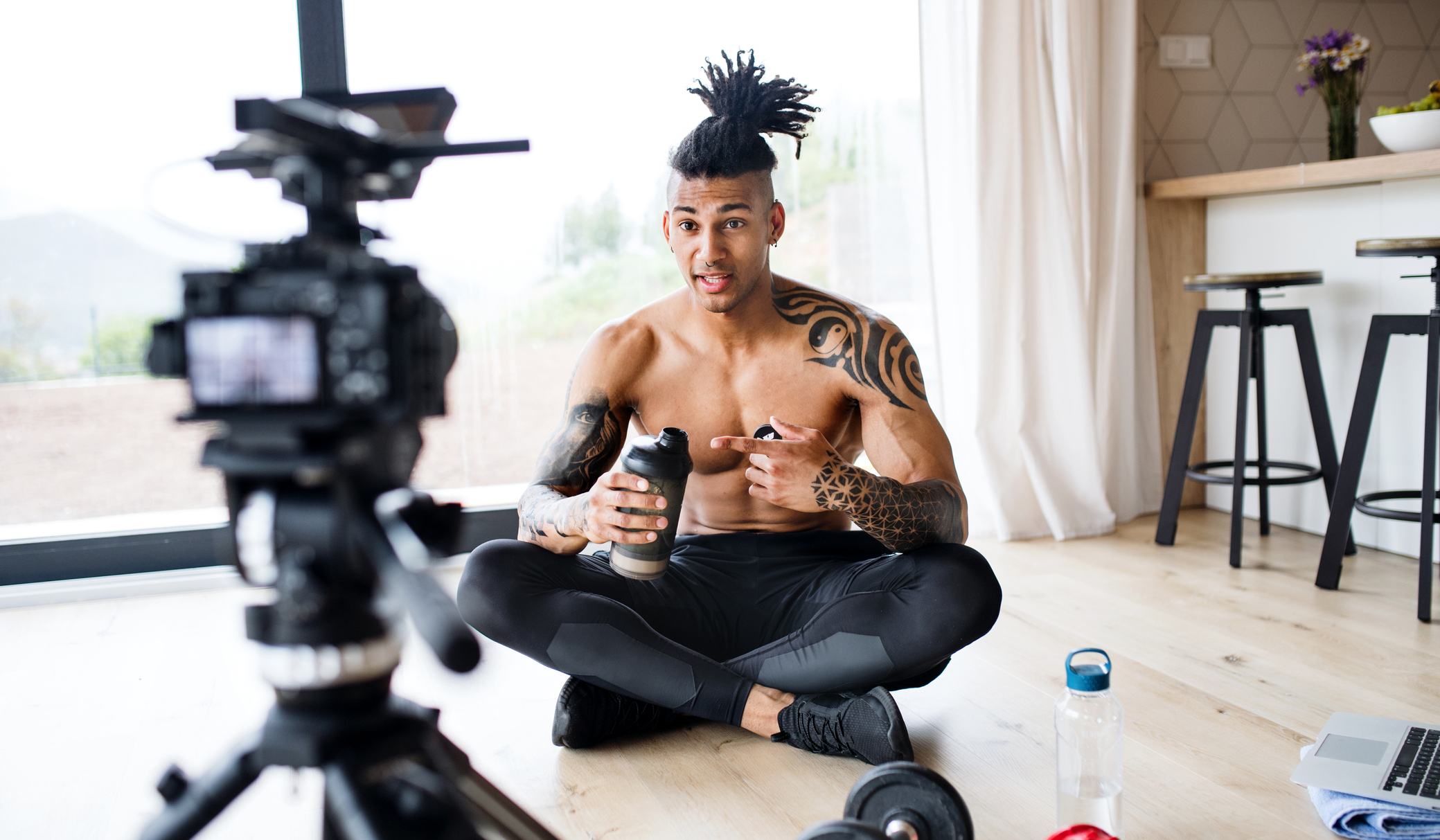Do social media fitness influencers really have your best interests at heart?
Edited and strategically-taken pictures by fitness influencers can contribute to anxiety and negative self-worth


Start your week with achievable workout ideas, health tips and wellbeing advice in your inbox.
You are now subscribed
Your newsletter sign-up was successful
According to Penn State University, hyperreality is what happens when you're unable to distinguish between reality and a simulation of reality. We've posted workouts and written about celebrities and social media stars on TikTok, Instagram and YouTube before, and many of their lives and figures always look so great – but don't get sucked into this hyperreality.
It's useful to think critically about who you follow and which social media stars you want to emulate, as not all of them might have your best interests at heart.
If you're looking to make a change in your life outside of social media, you might try and cook a little healthier, count your calories with a fitness tracker or try and go a bit longer on the best treadmill in the gym. However, constantly comparing yourself to influencers that look as though they have the perfect body, or perfect lives, might have you going further, embracing dangerously restrictive diets or considering steroid use. These practices are extremely dangerous to our mental and physical health.
One study, published by the National University of Singapore, found that Instagram use affected people indirectly through "social comparison", as users compared themselves to the people they followed. Being bombarded with images of influencers (or your friends) who have the body you want, or are on fabulous holidays, or live in big houses, can contribute towards social anxiety, as you feel like your own life is lacking in comparison.
In fact, many of these pictures have an element of artifice to them. The influencer industry is new, and unregulated: bodies can be photoshopped, people can lie about how they got their physiques, and shopping hauls can be photographed and then all returned. One influencer, Noel Deyzel, has recently spoken out against 'gymfluencers' who lie about their steroid use to convince you their bodies are attainable by natural means:
Watch Noel Deyzel speaking out against fake influencers:
If influencers are using filters, photoshop or steroids, and selling programmes or supplements, their products may be stuff they don't actually use. So it's wise to think critically about any purchase you make, or lifestyle changes you adopt, off the back of a social media post.
The influencer industry has no real regulatory governing body, and its marketing is extremely pervasive. Research published in the journals Frontiers in Psychology found children’s self-reported frequency of watching vlogs influenced consumption of unhealthy beverages
Start your week with achievable workout ideas, health tips and wellbeing advice in your inbox.
But even if you're not planning on buying any influencer products, don't let yourself fall into the trap of comparing yourself to other people on social media. Lighting, hydration, good photography, filters and digital touchups can hide blemishes and imperfections, and make you appear skinnier, more muscular or better-looking than you look on any given day. Even posing is important
Don't let others influence your self-esteem. Exercise and eat well to feel good about yourself, improve your health and achieve the body and life you want. Not the one being forced upon you by marketing. Don't get sucked into the hyperreality.
Matt Evans is an experienced health and fitness journalist and is currently Fitness and Wellbeing Editor at TechRadar, covering all things exercise and nutrition on Fit&Well's tech-focused sister site. Matt originally discovered exercise through martial arts: he holds a black belt in Karate and remains a keen runner, gym-goer, and infrequent yogi. His top fitness tip? Stretch.
